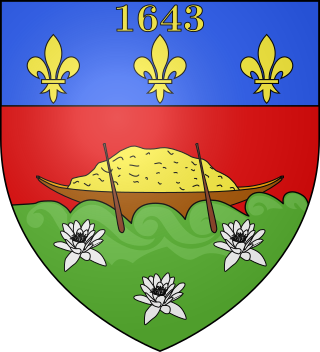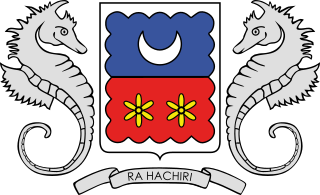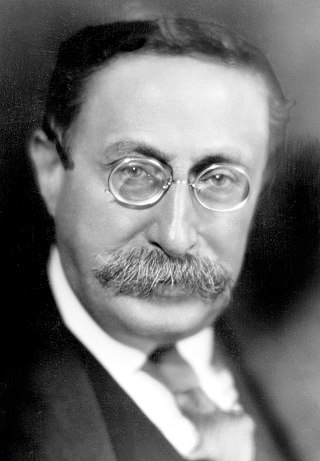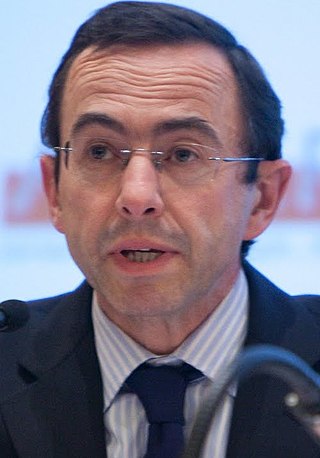
French Guiana is not a separate territory but is both an overseas région and overseas department of France, with the same government institutions as areas on the French mainland. The administrative center is Cayenne.

Mayotte, officially the Department of Mayotte, is an overseas department and region and single territorial collectivity of France. It is located in the northern part of the Mozambique Channel in the Indian Ocean off the coast of Southeastern Africa, between Northwestern Madagascar and Northeastern Mozambique. Mayotte consists of a main island, Grande-Terre, a smaller island, Petite-Terre, as well as several islets around these two. Mayotte is the most prosperous territory in the Mozambique Channel, making it a major destination for immigration.

The politics of Mayotte takes place in a framework of a French overseas region and department, until 2011 an overseas collectivity. Local politics takes place in a parliamentary representative democratic setting whereby the President of the General Council is the head of government, of a multi-party system. Executive power is exercised by the government. The status of Mayotte changed in 2001 towards one very close to the status of the départements of mainland France, with the particular designation of collectivité départementale, although the island is still claimed by the Comoros. This change was approved by 73% in a referendum on Mayotte. After the constitutional reform of 2003 it became a collectivité d'outre-mer while keeping the title collectivité départementale de Mayotte. Mayotte became an overseas department of France on 31 March 2011 following the result of the March 2009 Mahoran status referendum, which was overwhelmingly approved by around 95% of voters.

Réunion is an overseas département of France.

In the administrative divisions of France, the department is one of the three levels of government under the national level, between the administrative regions and the communes. Ninety-six departments are in metropolitan France, with an additional five constituting overseas departments, which are also classified as overseas regions. Departments are further subdivided into 333 arrondissements and 2,054 cantons. These last two levels of government have no political autonomy, instead serving as the administrative basis for the local organisation of police, fire departments as well as, in certain cases, elections.

France is divided into eighteen administrative regions, of which thirteen are located in metropolitan France, while the other five are overseas regions.

The National Assembly is the lower house of the bicameral French Parliament under the Fifth Republic, the upper house being the Senate. The National Assembly's legislators are known as députés, meaning "delegate" or "envoy" in English; etymologically, it is a cognate of the English word deputy, the standard term for legislators in many parliamentary systems.
The overseas departments and regions of France are departments of the French Republic which are outside the continental Europe situated portion of France, known as "metropolitan France". The distant parts have exactly the same status as mainland France's regions and departments. The French Constitution provides that, in general, French laws and regulations apply to French overseas regions the same as in metropolitan France, but can be adapted as needed to suit the region's particular needs. Hence, the local administrations of French overseas regions cannot themselves pass new laws. On occasion referendums are undertaken to re-assess the sentiment in local status.

Metropolitan France, also known as European France or l'Hexagone, is the area of France which is geographically in Europe. This collective name for the European regions of France is used in everyday life in France but has no administrative meaning, with the exception of only Metropolitan France being part of the Schengen Area. Indeed, the overseas regions have exactly the same administrative status as the metropolitan regions. Metropolitan France comprises mainland France and Corsica, as well as nearby French islands in the Atlantic Ocean, the English Channel, and the Mediterranean Sea. Its borders have undergone significant changes over the centuries, particularly in the east, but have remained unaltered since 1947.
The French overseas collectivities are first-order administrative divisions of France, like the French regions, but have a semi-autonomous status. The COMs include some former French overseas colonies and other French overseas entities with a particular status, all of which became COMs by constitutional reform on 28 March 2003. The COMs differ from overseas regions and overseas departments, which have the same status as metropolitan France but are located outside Europe. As integral parts of France, overseas collectivities are represented in the National Assembly, Senate and Economic and Social Council. Though some are outside the European Union, all can vote to elect members of the European Parliament (MEPs). The Pacific COMs use the CFP franc, a currency pegged to the euro, whereas the Atlantic COMs use the euro itself. As of 31 March 2011, there were six COMs:

Legislative elections were held in France on 26 April and 3 May 1936, the last elections before World War II. The number of candidates set a record, with 4,807 running for election to the Chamber of Deputies. In the Seine Department alone, there were 1,402 candidates.

Ericka Bareigts is a French politician of the Socialist Party (PS) who served as Minister of Overseas France in the governments of successive Prime Minister Manuel Valls and Bernard Cazeneuve from 30 August 2016 to 10 May 2017. She was a member of the National Assembly from 2012 until 2016 and from 2017 until 2020. Since 4 July 2020 she has been serving as Mayor of Saint-Denis, Réunion.

Overseas France consists of 13 French territories outside Europe, mostly the remnants of the French colonial empire that remained a part of the French state under various statuses after decolonisation. Most, but not all, are part of the European Union.

The Constitutional Council of France approved the redistricting of electoral boundaries in February 2010 to reflect France's changing demographics. The population ratio between the most populated and least populated constituencies was reduced from the 1986 redistricting results of 1:3.6 to 1:2. In effect, the number of seats increased in areas held by the centre-right coalition led by Union for a Popular Movement at the expense of the Socialist-led centre-left coalition. The 2010 redistricting process not only brought down the rule of two deputies per department to one, it also created eleven constituencies for French residents overseas.

The second constituency for French residents overseas is one of eleven constituencies representing French citizens living abroad. It was created by the 2010 redistricting of French legislative constituencies and elects, since 2012, one representative to the National Assembly.

The 4th constituency of Guadeloupe is a French legislative Constituency in the Overseas department of Guadeloupe. Since 2022, is represented by Élie Califer of the Socialist Party. Guadeloupe is composed of four Constituencies.
Yang Xiuzhu is a former Chinese female politician whose career ended after she was charged with corruption and expelled from the Chinese Communist Party. Yang served as Deputy Mayor of Wenzhou from 1995 to 1998 and deputy director of Zhejiang Construction Department from 1998 to 2003. After being charged with corruption, Yang evaded Chinese authorities and fled overseas in 2003. She had lived in many countries, including Hong Kong, Singapore, France, the Netherlands, Italy and the United States, to avoid punishment. On November 16, 2016, Yang was deported to China and surrendered to Chinese authorities, and sentenced to eight years' imprisonment in October. She was described by several media outlets as "China's most wanted fugitive" and "China's first female corruption giant".

Senatorial elections were held on 24 September 2017 to renew 170 of 348 seats in the Senate of the French Fifth Republic.














